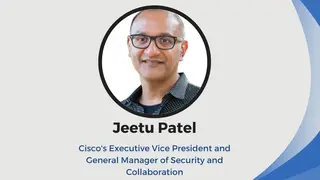In this edition of the State of the Economy podcast on Personal Finance, Roshi Jain, Senior Fund Manager at HDFC Mutual Fund talks to Aarati Krishnan on how investors can navigate the equity market with many speed bumps ahead. Roshi currently manages over $5 billion in assets for one of India’s largest mutual funds, HDFC Mutual Fund. Roshi, a CA, CFA, and IIM-Ahmedabad alumna, has nearly two decades of experience managing equity funds. Prior to this stint with HDFC MF, she was with Franklin Templeton Mutual Fund and Goldman Sachs.
India and indeed the world is seeing a return of inflation particularly in food crops, due to El Nino. In the long run, equities are the only asset to beat inflation. But in the short run, can inflation damage growth and earnings? Asked her views on this, Roshi said that it is difficult to take a call on how long inflationary pressures from food can last. However, the government and RBI were working at a two-pronged approach to contain inflation. So, inflation can have a short-term impact on consumption spending. But it is possible to construct a portfolio with companies that can tide over such transient issues and that equities will beat inflation in the long run. Nothing so far, she said, has made her change her long-term projections on portfolio companies.
She was among the early fund managers to spot value in corporate bank stocks, particularly PSUs. After the recent rally in these stocks, is there a runway to rise further?
Roshi said that select banks, due to their long-term competitive advantages will continue to do well, with sustained economic growth itself providing a growth runway for these banks. Bank balance sheets are well capitalized with healthy asset quality. She felt valuations were still attractive in the context of growth levers and the competitive situation. On the PSU versus private banks question, she pointed out that ownership is only one dimension of the decision to select banking stocks and there are many others.
On the re-rating of PSU stocks, and whether structural changes justified it, Roshi talked of the need to look at both the business cycle and prospects of individual companies when it came to investing in PSUs. The business cycle being in favour of capex and infrastructure investments is playing out in favour of PSU stocks. So instead of generalizing and juxtaposing past performance with the future, we need to look at PSUs on their own merit.
Typically in India, whenever general elections approach, equity markets turn very volatile. How does Roshi, as an equity fund manager, approach such an event?
Roshi replies that she keeps her sights firmly on the long-term prospects of her portfolio companies and looks to such events as opportunities to acquire positions in good companies. Equities are a long-term instrument, and we are long-term fundamental research-oriented investors. I believe that as long as we stay disciplined in our investment philosophy and our process, we should actually be able to take advantage of any short term volatility in order to create long term value for our investors. I think with that philosophy in mind, volatility actually becomes something that we can take advantage of, rather than be wary of.
Listen to the podcast now!
(Host: Aarati Krishnan, Producers: Anjana PV, Nabodita Ganguly)
---------------------------------------------------------------------------------
About the State of the Economy podcast
India’s economy has been hailed as a bright spot amid the general gloom that seems to have enveloped the rest of the world. But several sectors continue to stutter even as others seem set to fire on all cylinders. To help you make sense of the bundle of contradictions that the country is, businessline brings you podcasts with experts ranging from finance and marketing to technology and start-ups







Comments
Comments have to be in English, and in full sentences. They cannot be abusive or personal. Please abide by our community guidelines for posting your comments.
We have migrated to a new commenting platform. If you are already a registered user of TheHindu Businessline and logged in, you may continue to engage with our articles. If you do not have an account please register and login to post comments. Users can access their older comments by logging into their accounts on Vuukle.